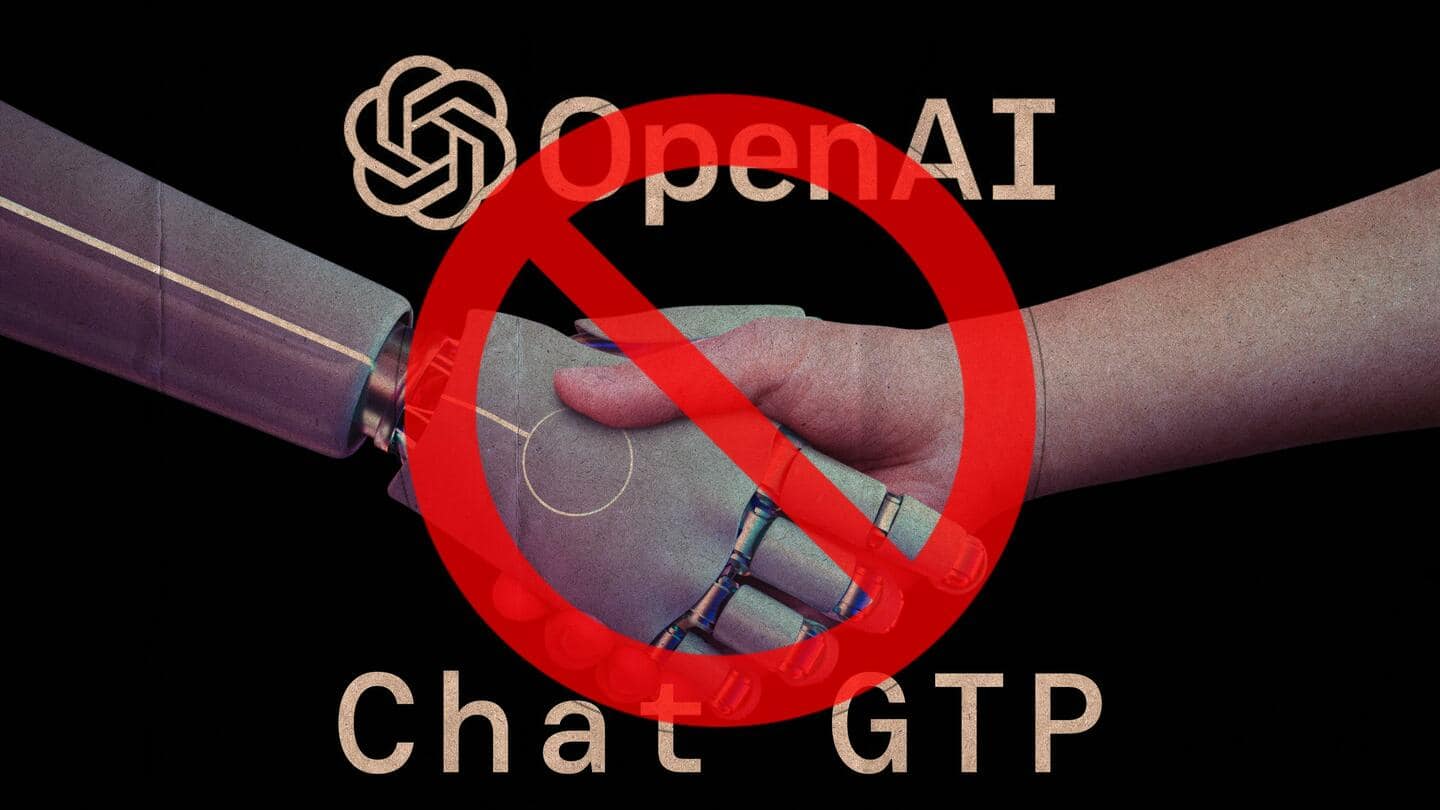
NYC schools ban ChatGPT amid concerns about its negative impacts
What's the story
New York City's (NYC) public schools have made a decision that is set to start a raging debate on AI. The NYC Department of Education has blocked access to ChatGPT, one of the most powerful language-processing AI tools ever created. The chatbot's ability to create full-fledged content, including essays, poems, and movie scripts, has raised many eyebrows.
Context
Why does this story matter?
With the capabilities of AI models becoming more advanced, the debate surrounding the content they produce is also stepping into a new realm. From DALL-E's images to ChatGPT's text, people have started questioning the implications of AI-generated content. We're entering a phase where AI models are becoming more 'human' than before. This will certainly lead to more controversies and questions about their impact.
Ban
There are concerns about the accuracy of ChatGPT-produced content
NYC's education department has restricted access to ChatGPT due to concerns about its "negative impacts on student learning" and "the safety and accuracy of the content" it produces. This decision by the largest public school system in the US is expected to have a ripple effect, as schools and other educational institutions try to grapple with the new reality formulated by the dynamic technology.
Official words
'ChatGPT will not build critical thinking, problem-solving skills'
"While the tool may be able to provide quick and easy answers to questions, it does not build critical thinking and problem-solving skills, which are essential for academic and lifelong success," said Jenna Lyle, the spokesperson for New York public schools. It is, however, not a ban per se. The schools are using the same filter they use to block sites such as YouTube.
Cheating potential
Many fear that the chatbot will help students cheat
NYC is the first major school district in the US to make a move against ChatGPT. Although it is unclear how popular the chatbot is among students, there is a growing fear about its cheating potential. A simple search will fetch multiple examples of homework assignments and essays completed by the chatbot. And almost all of them will pass the yardsticks of approval.
Plagiarism
ChatGPT's dependency on public data could cause many issues
ChatGPT, like other text-generating AI models, is trained on public data. The data it uses is usually collected without consent. Therefore, some educators fear that ChatGPT will lead to plagiarized content. Usage of public data can also lead to factually inaccurate and even biased content. Despite OpenAI's attempts to fix this by introducing filters, people continue to find ways around them.
OpenAI
OpenAI is developing 'mitigations' to detect ChatGPT-produced content
OpenAI, the creator of ChatGPT, has taken the criticism it is facing in its stride. The company said that it is developing "mitigations" to help people detect text generated by ChatGPT. "We made ChatGPT available as a research preview to learn from real-world use, which we believe is a critical part of developing and deploying capable, safe AI systems," it added.